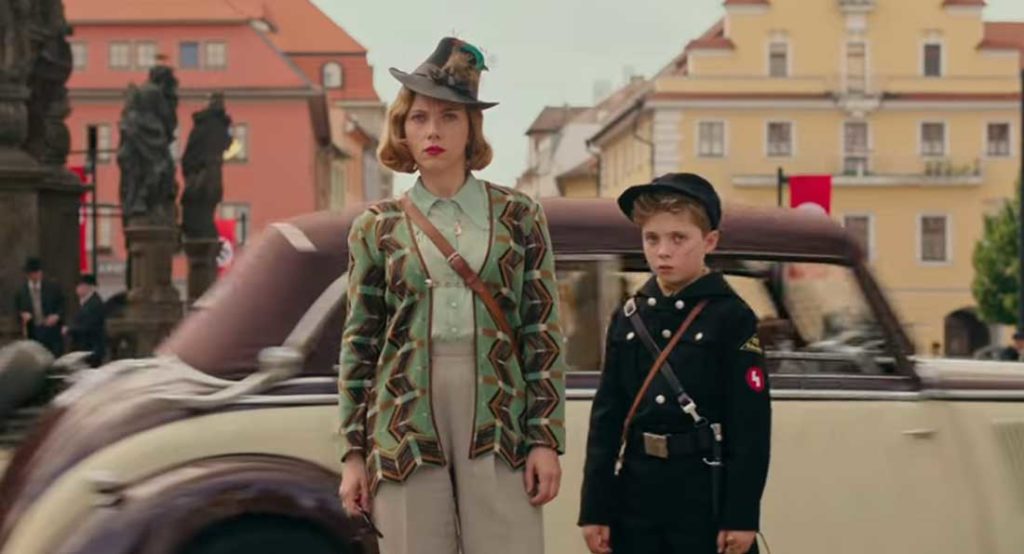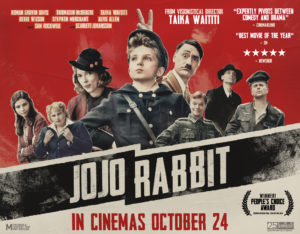Directed by Taika Waititi | Written by Waititi, adapting a novel by Christine Leunens | 108 min | Crave Plus
The 2019 TIFF Audience Award-winner has arrived in local cinemas, and I’m thrilled to report it’s a lot better than last year’s, Green Book, which unaccountably went on to win Best Picture at the Oscars.
Jojo Rabbit is a satire on war and all its insanity, told from a child’s perspective and set towards the end of the Second World War in small-town Germany. Written and directed by Waititi, it’s a wonderful film—one that starts as a broad, farcical comedy, borrowing liberally from Mel Brooks, Monty Python, and Wes Anderson, and then gradually transforms into a moving drama, all while avoiding the maudlin. A comedy about hate and war isn’t something you see too often, though it does share narrative DNA with Joseph Heller’s Catch 22.
Jojo is played by Roman Griffin Davis in his first film role. He’s a 10-year-old devotee to Hitler and all he stands for, and keen to be one of his hero’s personal guard. He even imagines der Führer (played with a lot of enthusiasm by the director) as his imaginary friend, giving him advice and keeping him on the straight and narrow.
Jojo’s mother, Rosie (Scarlett Johansson, terrific), doesn’t share her son’s fervour, but also doesn’t want to staunch his enthusiasm in a community where it’s encouraged. The story takes a turn into more complex territory with the introduction of Elsa (Thomasin McKenzie), a Jewish girl hiding from the Nazis. All this while support is offered in largely hilarious notes from the likes of Sam Rockwell, Alfie Allen, Stephen Merchant, and Rebel Wilson, all playing various Nazi officers, with the young Archie Yates as Jojo’s best buddy, Yorki.
We’ve seen Waititi’s skill with child actors in films like Hunt For The Wilderpeople, but this is a more mature effort, if maturity can really be ascribed to material so frequently goofy. It’s a balancing act, divining laughter from historic horrors and then taking a turn into sincerity, but that it works as well as it does is a testament to the particular gift that Waititi, who is a Māori Jew, brings to all his work.
The takeaway of Jojo Rabbit is that war and prejudice is absurd, it’s healthy to laugh in the face of fascism, and that we should dance while we have the chance.










